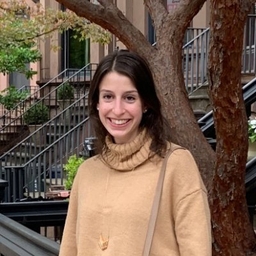
Abigail Fagan
Associate Editor at Psychology Today
Senior Associate Editor at @psychtoday | Writing in @sciam, @TheCut, @dailytonic, @Spectrum, and others | NYU Journalism #SHERP35
Articles
-
1 day ago |
psychologytoday.com | Nigel Barber Ph.D |Abigail Fagan
Our distant ancestors did not contend with added sugar in their food and did not eat junk food. Yet, this is not the only reason that they avoided being overweight. Their lifestyles used a lot of energy and this meant they avoided weight problems. Energy BalanceA lot of what is written about weight control focuses on the energy content of food and how much of that gets stored as body fat. This is not irrelevant, of course.
-
1 week ago |
psychologytoday.com | Sam Goldstein Ph.D |Abigail Fagan
Strong adult connections form the foundation of youth resilience. Stress hardiness and adaptability can be actively taught and reinforced. Resilience develops from genuine experiences, not merely support. Young people encounter unprecedented challenges in an era marked by rapid change and increasing pressures. From economic instability to digital saturation and the decline of traditional community structures, the world they inherit is complex and unpredictable.
-
1 week ago |
psychologytoday.com | Joe Pierre M.D |Abigail Fagan
Source: Cottonbro Studio / Pexels"Commerce is our goal here... More human than human is our motto." —Eldon Tyrell, Bladerunner (1982)Over the past several years, the hype over artificial intelligence (AI) has reached fever pitch, driving both rabid investment in and the development of new consumer products.
-
1 week ago |
psychologytoday.com | Abigail Fagan
This post is written by T. Roy, Junior Research Assistant at Department of Psychology, Monk Prayogshala, Mumbai. June, also known as Pride Month, is a time when rainbows appear on the sidewalks, cheeks shimmer with glitter, and various corners of the world hum with the stories of courage and songs of revolution. Every gaze and every smile conveys internal confessions that have been masked for years.
-
1 week ago |
psychologytoday.com | Larry Carlat |Abigail Fagan
I was always a good finder. No matter who or what it was, I could find pretty much anything I was looking for. But my older son, Rob, was better at hiding. He kept all kinds of things hidden from me for all kinds of reasons. It didn’t make me love him any less. In fact, it may have been why I loved him more, as I knew the secret behind his instinctive ability to conceal. It was simply this: Rob was lost. He was lost before we lost him forever. He thought he was able to hide it, especially from me.
Try JournoFinder For Free
Search and contact over 1M+ journalist profiles, browse 100M+ articles, and unlock powerful PR tools.
Start Your 7-Day Free Trial →X (formerly Twitter)
- Followers
- 420
- Tweets
- 214
- DMs Open
- No

RT @DrCarlErik: My essay in the @nytimes is out: https://t.co/ZGM1toTkfb

RT @AlisonGopnik: Very effective column on how to cut child poverty. Every developmental psychologist and neuroscientist will tell you jus…

"Can a person unloved in childhood learn to love?" https://t.co/KTjCQJ8YFI